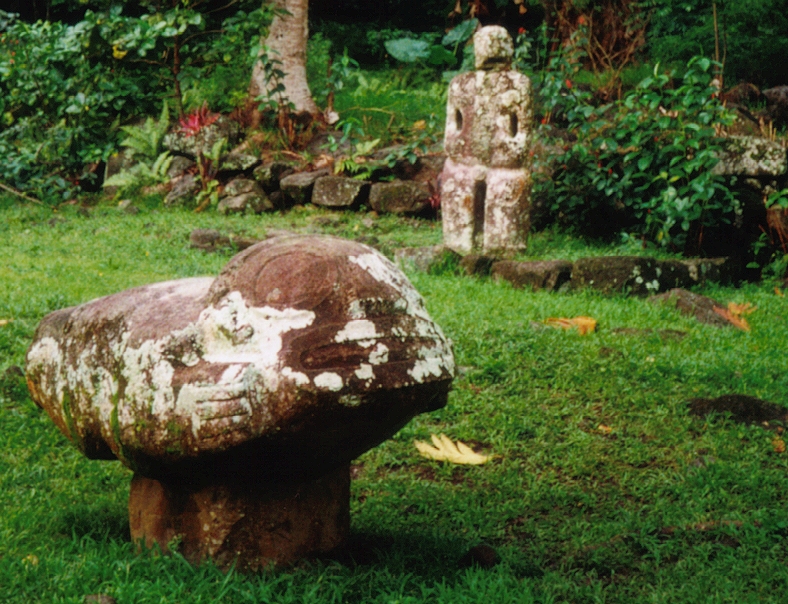|
Motoro
Motoro is a god in Polynesian mythology, the tribal god of the Ngariki of Mangaia. He is the son of Tangiia and the brother of Ruanuku, Kereteki and Utakea. While travelling to Mangaia he argued with his two eldest brothers, was thrown into the sea, and devoured by sharks. His spirit then floated to Mangaia on a piece of hibiscus. He was known as ''i'o ora'' ("god of the living") because his followers could not be used as human sacrifice Human sacrifice is the act of killing one or more humans as part of a ritual, which is usually intended to please or appease gods, a human ruler, an authoritative/priestly figure or spirits of dead ancestors or as a retainer sacrifice, wherein ...s. References Mangaia mythology {{CookIslands-stub ... [...More Info...] [...Related Items...] OR: [Wikipedia] [Google] [Baidu] |
Polynesian Mythology
The Polynesian narrative or Polynesian mythology encompasses the oral traditions of the people of Polynesia (a grouping of Central and South Pacific Ocean island archipelagos in the Polynesian Triangle) together with those of the scattered cultures known as the Polynesian outliers. Polynesians speak languages that descend from a language reconstructed as Proto-Polynesian - probably spoken in the Tonga - Samoa area around 1000 BC. Description Prior to the 15th century AD, Polynesian peoples fanned out to the east, to the Cook Islands, and from there to other groups such as Tahiti and the Marquesas. Their descendants later discovered the islands from Tahiti to Rapa Nui, and later Hawai‘i and New Zealand. The latest research puts the settlement of New Zealand at about 1300 AD. The various Polynesian languages are all part of the Austronesian language family. Many are close enough in terms of vocabulary and grammar to permit communication between some other language speakers. ... [...More Info...] [...Related Items...] OR: [Wikipedia] [Google] [Baidu] |
Mangaia
Mangaia (traditionally known as A'ua'u Enua, which means ''terraced'') is the most southerly of the Cook Islands and the second largest, after Rarotonga. It is a roughly circular island, with an area of , from Rarotonga. Originally heavily populated, Mangaia's population has dropped by 75% in the last 50 years. Geography Originally known as ''A'ua'u'' or ''A'ua'u Enua'' ("terraced"), the island was named Mangaia (or ''Mangaianui-Neneva'', "Mangaia monstrously-great") by Tamaeu, who came to the island from Aitutaki in 1775. Geologists estimate the island is at least 18 million years old. It rises 4750 m (15,600 ft) above the ocean floor and has a land area of 51.8 km2. Surrounded by a fringing coral reef, like many of the southern Cook Islands, it is surrounded by a high ring of cliffs of fossil coral 60 m (200 ft) high, known as the makatea. The inner rim of the ''makatea'' forms a steep cliff, surrounding swamps and a central volcanic plateau. The interi ... [...More Info...] [...Related Items...] OR: [Wikipedia] [Google] [Baidu] |
Human Sacrifice
Human sacrifice is the act of killing one or more humans as part of a ritual, which is usually intended to please or appease gods, a human ruler, an authoritative/priestly figure or spirits of dead ancestors or as a retainer sacrifice, wherein a monarch's servants are killed in order for them to continue to serve their master in the next life. Closely related practices found in some tribal societies are cannibalism and headhunting. Human sacrifice was practiced in many human societies beginning in prehistoric times. By the Iron Age with the associated developments in religion (the Axial Age), human sacrifice was becoming less common throughout Africa, Europe, and Asia, and came to be looked down upon as barbaric during classical antiquity. In the Americas, however, human sacrifice continued to be practiced, by some, to varying degrees until the European colonization of the Americas. Today, human sacrifice has become extremely rare. Modern secular laws treat human sacrifices ... [...More Info...] [...Related Items...] OR: [Wikipedia] [Google] [Baidu] |


_-_Ciudad_de_México.jpg)